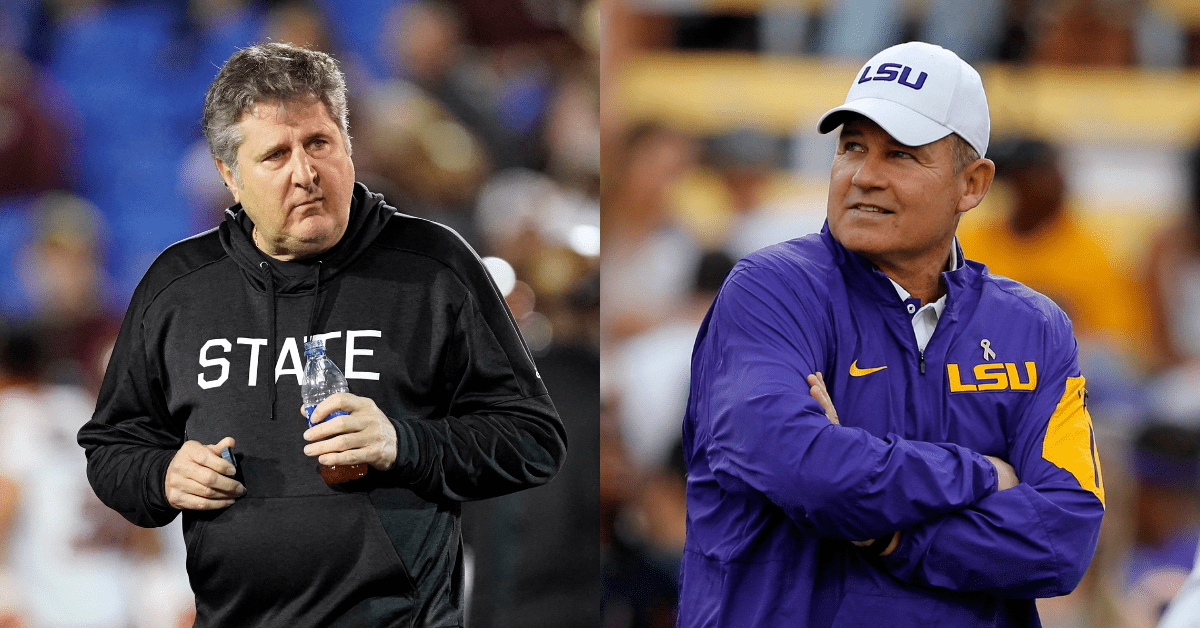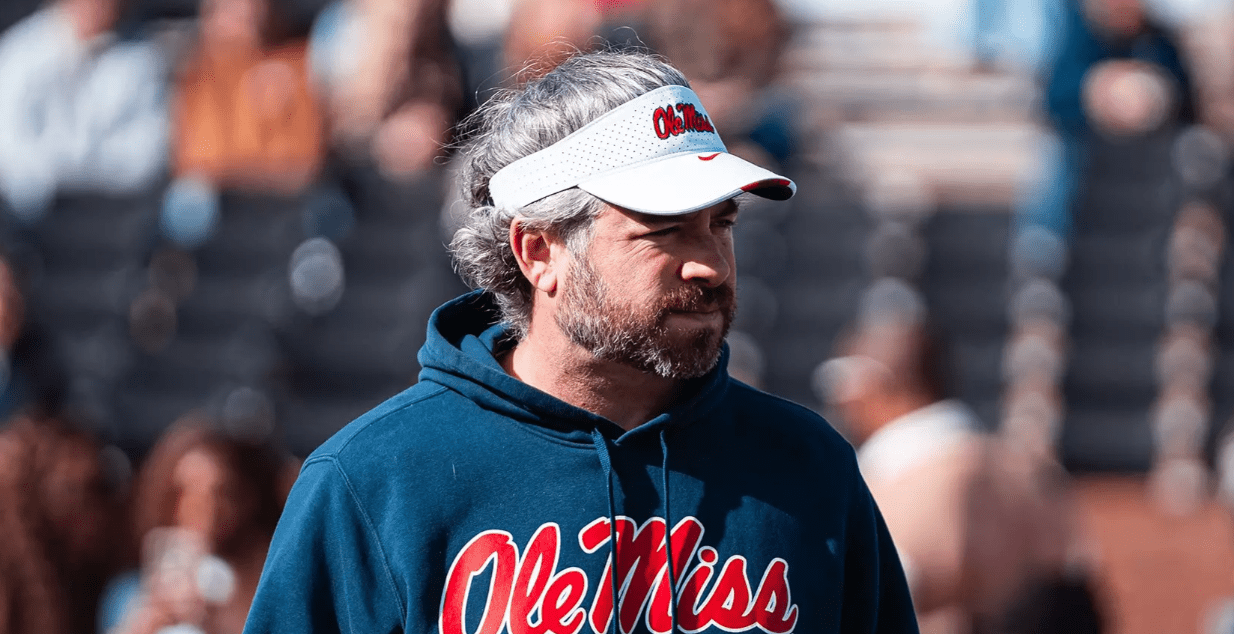
Mike Leach (left - (AP Photo/Mark Humphrey - Dec. 28, 2021) and Les Miles (right - AP Photo/Gerald Herbert, File - Oct. 17, 2015)
- Sportswriter Parrish Alford says the Hall should do the right thing by both coaches.
The College Football Hall of Fame is a wonderful place, a must-see for all fans, but specifically those in the Southeast for whom Atlanta is easily accessible.
Aside from when new Hall of Fame classes are announced in January, the Hall doesn’t generate a lot of news, but June has been different.
Two coaches who fall just short of the Hall’s 60% win threshold for inclusion – Mike Leach and Les Miles – are trying to gain entry in different ways.
There’s a posthumous buzz of support for Leach, whose career win percentage is a tantalizingly close 59.6.
Miles, meanwhile, reached the threshold until LSU voluntarily vacated some wins from his time there in a peace offering to the NCAA. Now Miles is suing LSU, the NCAA and the Hall of Fame itself.
LSU’s decision to subtract 37 of Miles’ wins between 2012 and 2015 leaves him with a career win percentage of 59.7. The vacated wins are related to an NCAA finding that former LSU offensive lineman Vadal Alexander received illegal benefits before benefits were cool, according to The Associated Press.
Both of these guys have legitimate complaints.
I wonder, if Leach were alive, if he really would be complaining. My guess is not. He didn’t care what people thought about him at any other time in his career. Why would he care in death?
There was a time in Mayberry that Barney Fife got himself stuck in a honey trap. The result was a hearing to determine Andy’s fitness for continued sheriffing with Barney, to his surprise, being called as a witness for the prosecution. At the end of his emotional testimony Barney, though lacking in application, showed depth of understanding a lesson the sheriff had long tried to teach.
“You asked me if Andy runs a taut ship, Mr. Milton. Well, no, he don’t. But that’s because of something that he’s been trying to teach me ever since I started working for him. And that is: when you’re a law man and you’re dealing with people, you do a whole lot better if you go not so much by the book, but by the heart.”
The Hall’s honor court, who has the final say on who gets in, needs to make an exception in Leach’s case.
Leach’s 59.6 win percentage would be much higher if he had been a job climber. Instead, Leach had a way of knocking out nine-win seasons at places where that figure – perhaps unimpressive to the sport’s biggest brand names – was pretty rare.
Further validation for Leach’s work at Texas Tech, Washington State and Mississippi State can be found with Miles’ record for two seasons at Kansas as he finished his career. The Jayhawks in 2019 and 2020 were a combined 3-18, 1-16 in Big 12 Conference play.
Yes, 2020 was the COVID year, but it was tough all over. Not every coach went 0-9.
Prior to taking the LSU job, Miles, who won the national championship with LSU in 2007, coached at Oklahoma State four seasons where he won nine games once.
This isn’t about Mike Leach vs. Les Miles. It’s about the Hall of Fame doing the right thing by both coaches.
Miles would not be having this fight if 37 wins had not been vacated. LSU would not have offered to vacate wins if there had not been many examples of the NCAA delighting in such as one of its tools. It’s pure punishment folly. You can note that certain wins were achieved while certain rules were found to have been broken, but you can’t put the toothpaste back in the tube. Games were played.
If the goal of punishment by any authority is reconciliation, the act of vacating wins is just piling on when you consider financial penalties, scholarship cuts, postseason probation and other available weapons.
Leach was an innovator on offense who many other coaches copied. His impact on the game will be felt for years. These are the practical reasons for Leach to be included.
Southern Cal coach Lincoln Riley, one of those Leach disciples, summed it up when he said, “It’s tough to imagine the College Football Hall of Fame without him.”
Expand that a little bit. Think about college football without Mike Leach.
When Leach died college football lost flamboyance, but it also lost a big-picture thinker.
He’ll be most remembered for his penchant for pirates, his book, “Swing Your Sword,” for his wildly entertaining rants with sideline reporters after games or with local media on Monday afternoons, his one-liners, his hot takes that went viral on Twitter.
Whether it was the best Halloween candy, wedding advice or taking up chairs on the sideline because his receivers didn’t deserve to sit down, Mike Leach could take over social media.
Sadly, he’ll be less remembered for his thoughtful positions on problems in college football.
When I spoke with him at the SEC’s Destin business meetings in 2022 Leach opposed the position of SEC Commissioner Greg Sankey, Mississippi State President Mark Keenum and others who sought – and still seek – federal oversight of NIL.
Leach’s position was that College Football could fix its own mess.
He didn’t advocate straight payments to players, but payments tied to education. You could still have NIL, but let the schools pay every player a $150,000 bonus, maybe even more, if they graduated from the school with which they signed.
Market value would see to it that the five-star quarterbacks still had their own NIL deals, but Leach’s plan could possibly ease this fascination with the transfer portal and make players more willing to navigate adverse conditions in one spot. Maybe coming out on the other side of rough stretches could help them navigate life.
Mike Leach gave College Football a Hall of Fame idea. The Hall can give him an exception.











